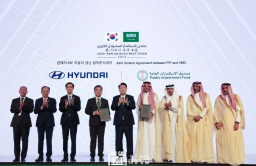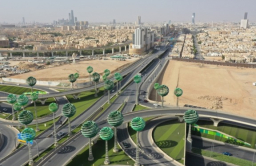-
KOSPI 2577.27 -2.21 -0.09%
-
KOSDAQ 722.52 -7.07 -0.97%
-
KOSPI200 341.49 +0.02 +0.01%
-
USD/KRW 1396 -2.00 0.14%
Hyundai Motor chief aims to revive grandfather’s spirit in Saudi Arabia
Leadership & Management
Hyundai Motor chief aims to revive grandfather’s spirit in Saudi Arabia
Chung Euisun looks to replicate the miracle Hyundai founder Chung Ju-yung achieved in the Middle East
By
Oct 24, 2023 (Gmt+09:00)
4
Min read
News+
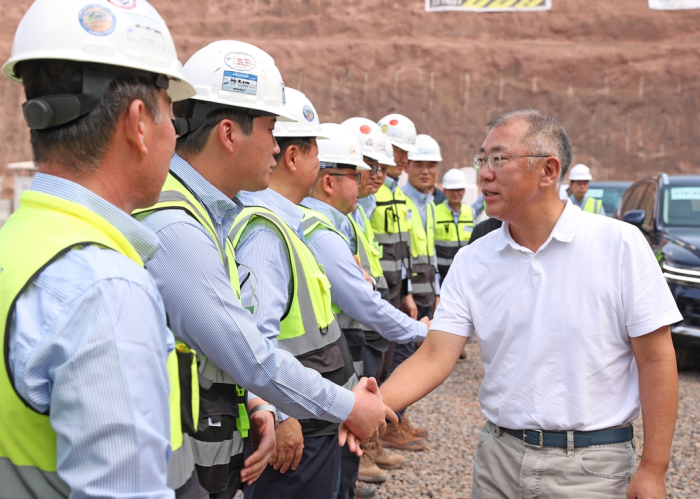
Back in the 1970s, the Middle East was where many South Korean companies longed to be as the region was the country's main source of foreign income.
Under the scorching sun, Korea’s construction workers and engineers labored tirelessly to build roads, houses and ports to earn oil money and send it back home to develop their country, which now has become Asia’s fourth-largest economy.
Hyundai Group founder Chung Ju-yung is indisputably a legend when it comes to the “Miracle in the Middle East,” referring to the big construction projects Koreans successfully carried out in the desert.
As the chief executive of Hyundai Engineering & Construction Co. (Hyundai E&C), he led Korea’s megaprojects to build infrastructure in the region, including the construction in 1976 of the Jubail Port, or the King Fahad Industrial Port, in Saudi Arabia, dubbed the largest construction work of the 20th century.
A few decades later, his grandson and chairman of Korea’s largest automotive group Hyundai Motor Co. wants to replicate the Middle East myth that his grandfather created – this time with electric cars, hydrogen vehicles and infrastructure projects.
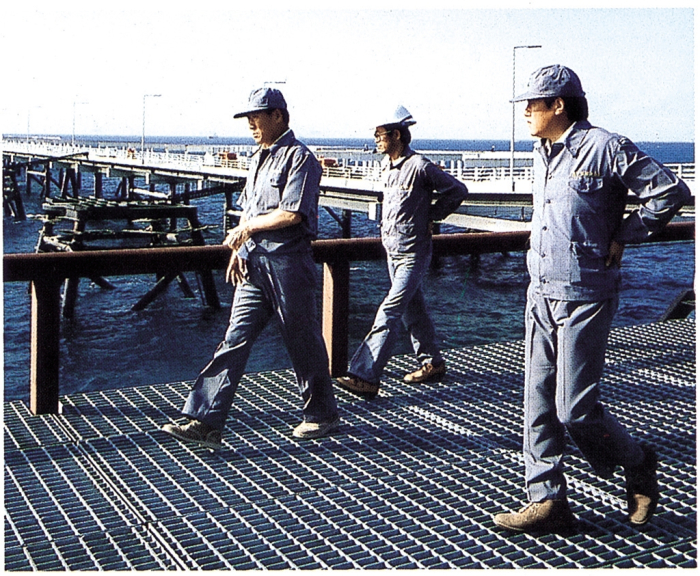
NEOM CITY
On Monday, Chung Euisun visited the underground tunnel construction site of Hyundai E&C within “The Line,” a residential area in Neom City, a smart city under development in the northern part of Saudi Arabia.
Hyundai E&C, the construction affiliate of Hyundai Motor Group, is constructing a 12.5 km section of an underground tunnel for high-speed and freight railways in The Line area.
“I’m proud of all of you,” Chung told Hyundai E&C executives and employees there. “We, the Hyundai Motor Group will actively support with a sense of responsibility what Hyundai E&C has built here."
He is in Riyadh as part of the business delegation accompanying South Korean President Yoon Suk Yeol’s state visit to Saudi Arabia and Qatar.
On Sunday, the chairman signed a $500 million deal to jointly build a car plant in King Abdullah Economic City (KAEC) with the Public Investment Fund (PIF), Saudi Arabia’s sovereign wealth fund.
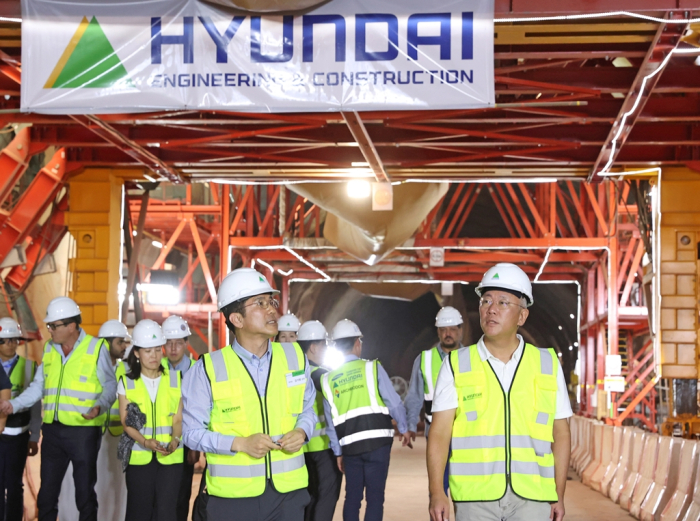
The plant, which would be Hyundai’s first EV production site in the Middle East, is expected to serve as its gateway to the region and North Africa.
The factory will also serve Hyundai and its sibling Kia Corp.’s ambition to sell 55,000 cars annually in the Middle East by 2030 to control 20% of the regional market with their EV lineup.
AIMS FOR TOP SPOT IN SAUDI EV MARKET
In Saudia Arabia alone, Hyundai and Kia already control 21% of its car market as the No. 2 car seller after Japan’s Toyota Motor.
Saudi Arabia, the world’s largest oil producer, is aggressively seeking to roll out electric cars across the country in preparation for the post-oil era.
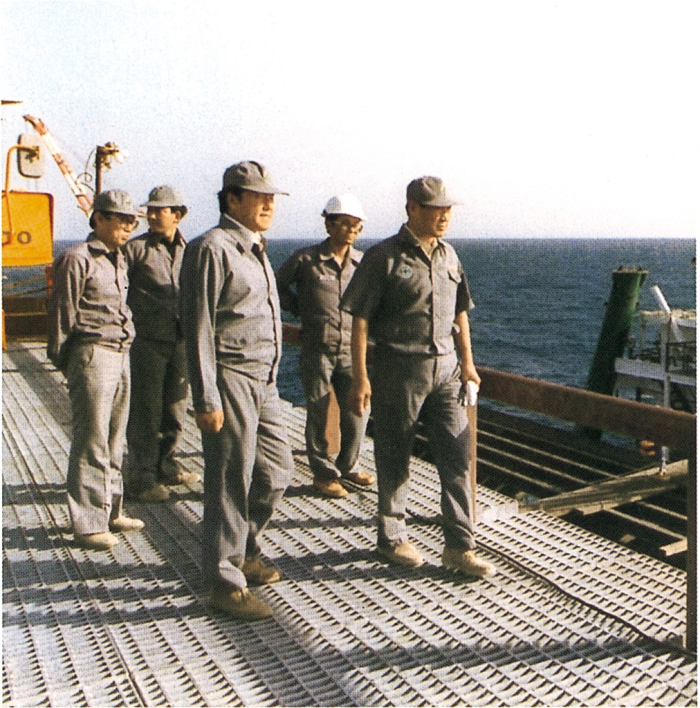
Mohammed bin Salman, the crown prince and prime minister of Saudi Arabia, has vowed to turn a third of all cars running in the Kingdom’s capital city of Riyadh into electric vehicles by 2030.
He is also leading a $500 billion project to build Neom, a smart city to be fully run on renewable energy such as solar power and green hydrogen as well as cutting-edge technologies, including 5G networks, the Internet of Things, cloud computing and robotics, in a desert area in the kingdom's northern Tabuk Province.
During the past weekend, Hyundai also signed an initial agreement with Korea Automotive Technology Institute (KATECH), Air Products Qudra (APQ) and the Saudi Public Transport Company (SAPTCO) to develop an ecosystem for hydrogen-based mobility in the Kingdom.
ENERGY PROJECTS
Hyundai Motor Group’s other affiliates are also clinching big deals in Saudi Arabia.
Hyundai E&C and Hyundai Engineering Co. said on Monday they won a 3.1 trillion won ($2.3 billion) deal from Saudi Aramco to build phase 2 of the Saudi Jafurah gas processing facility project.
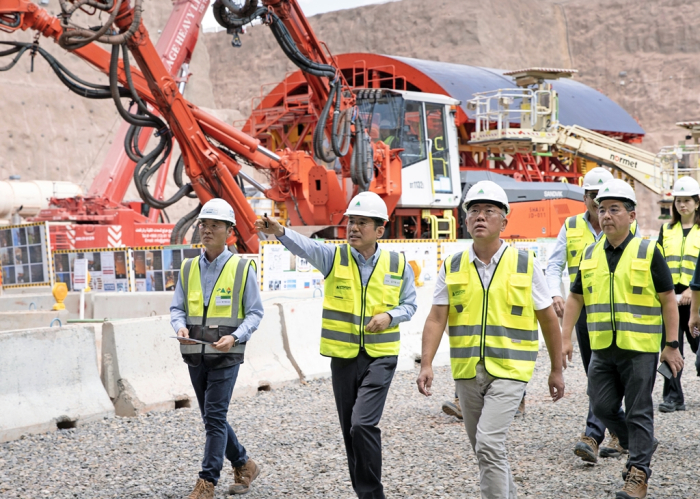
In June, Hyundai E&C was named to lead Saudi Aramco’s 6.5 trillion won Amiral Project to build a large-scale petrochemical complex. The deal marks the largest Saudi project any Korean firm has ever won.
Hyundai E&C is working on 23 construction projects in five Middle Eastern countries worth a combined 26.3 trillion won, including the Amiral Project.
Hyundai Rotem Co. last year clinched a 755.7 billion won deal from Egypt’s National Authority for Tunnels to supply electric trains for Cairo Lines 2 and 3.
Hyundai Steel Co., which last year won a deal to supply heavy plates for the expansion work of the natural gas liquid plant in Saudi Arabia's Ju’aymah oil field, recently delivered them.
“If you look at Chairman Chung, it seems that the indomitable spirit of meeting challenges runs in the family,” said an industry official.
Write to Il-Gue Kim at Black0419@hankyung.com
In-Soo Nam edited this article.
More To Read
-
Oct 23, 2023 (Gmt+09:00)
-
Oct 20, 2023 (Gmt+09:00)
-
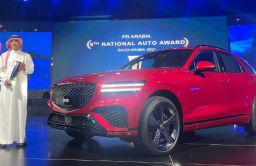 Business & PoliticsHyundai eyes Saudi EV plant as Korea bets on Middle East boom
Business & PoliticsHyundai eyes Saudi EV plant as Korea bets on Middle East boomSep 18, 2023 (Gmt+09:00)
-
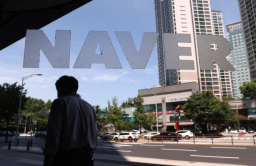 Tech, Media & TelecomNaver to aid in Saudi’s digital transformation, green light for Neom deal
Tech, Media & TelecomNaver to aid in Saudi’s digital transformation, green light for Neom dealMar 30, 2023 (Gmt+09:00)
-
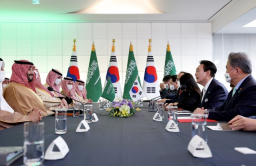 Business & PoliticsSaudi prince’s Seoul trip brings $30 billion in business deals
Business & PoliticsSaudi prince’s Seoul trip brings $30 billion in business dealsNov 17, 2022 (Gmt+09:00)


